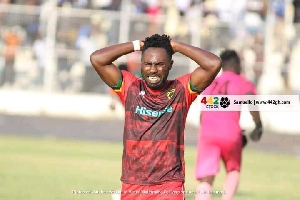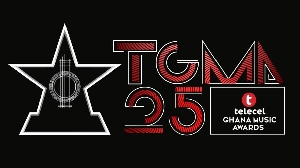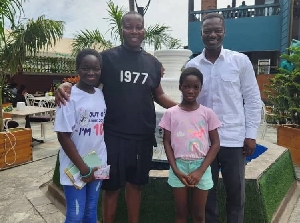- Home - News
- TWI News | TV
- Polls
- Year In Review
- News Archive
- Crime & Punishment
- Politics
- Regional
- Editorial
- Health
- Ghanaians Abroad
- Tabloid
- Africa
- Religion
- Election 2020
- Coronavirus
- News Videos | TV
- Photo Archives
- News Headlines
- Press Release
Opinions of Saturday, 11 April 2015
Columnist: Siewobr, Charles Lwanga
The use of vulgar language in our political/national discourse
Recent happenings in our political/national discourse depict a very worrying trend. There is no modicum of decorum on the various platforms on which such discourse take place. Casting of innuendoes, insinuations and direct insults has taken centre stage in our political discourse; be it in the traditional/mainstream media—print and electronic—or in the social media much to the neglect of the issues that should rather be engaging our attention. This unfortunate development has gained notoriety in the mainstream media since the regulators of the media—the National Media Commission (NMC) is a toothless bull dog that only barks but seldom bites. The various social media platforms are equally awash with what can be regarded as the facsimile of what transpires in the mainstream media.
This development is particularly worrying considering the gross display of lack of respect for the elderly all in the name of partisan politics and democracy. Political talk shows have turned into a free-for-all insult spree for those who can hurl same at the fastest speed. In their over exuberant bid to catch the eyes of their political godfathers and mothers, the youth particularly have thrown the sound moral teachings they received/receive at home to the dogs and resort to all forms of vulgar language all in the name of democracy. To where are we heading as a nation and as a generation?
This cancer cuts across all political divides. It is now ‘normal’ to hear people--members of opposition parties particularly--perspicuously insulting the President of the Republic of Ghana in the same way members of the party in power don’t miss the opportunity to describe members and leaders of opposition parties in unprintable words. Even if one would not ordinarily respect the president as an individual, the office he occupies should be respected. Unfortunately, our media, both print and electronic, give audience and hype to such insults. In most cases, such unprintable words become news headlines. Some unfortunately use such insults as jingles which serve as curtain raisers to political talk shows. How pathetic!!! In effect, the media is encouraging the use of such vulgar and incendiary language that has the tendency of plunging this nation into turmoil. Worse still, the media reads unpalatable text messages sent in by listeners/viewers. What would happen if messages that are deemed distasteful and not read? But the continuous reading of such messages gives listeners/viewers the impetus to keep sending such messages.
What these political actors seem to be oblivious of is that such derogatory statements repel rather than attract undecided electorates. I get exasperated anytime I read or hear insults in national discourse irrespective of which quarter of the divide it is coming from. Aren’t there leaders in these political parties to call their members to order? Better still, why shield the same members who seek to bring into opprobrium the very party they vehemently support?
It is high time the media blacklisted political parties and their representatives for using insulting language to serve as deterrent to others. Unfortunately, a high percentage of our media is owned by politicians. These politicians when blacklisted by other media houses would still use their own media to unleash such derogatory statements. This is when the regulator, the National Media Commission, has to crack the whip. Deviant media houses must be made to face the music without fear or favour. If this trend goes on unchecked, we risk destabilizing the relative peace and security we have been enjoying for this while. Political leaders and parties must be bold to distance themselves from utterances that seek to undermine our very existence.
Charles Lwanga Siewobr
0242 827 039/0502 856 100
sclwanga@yahoo.com










